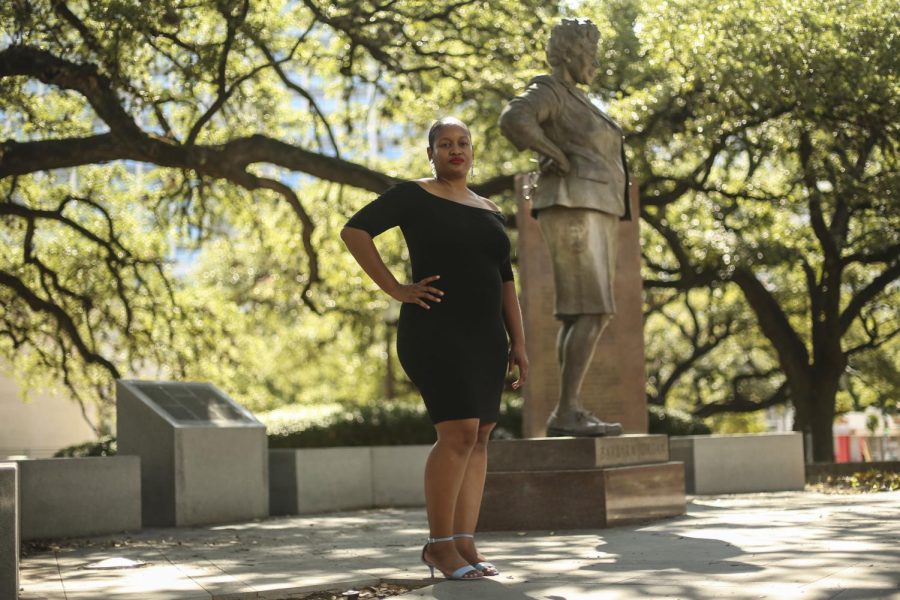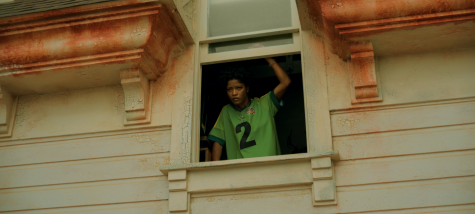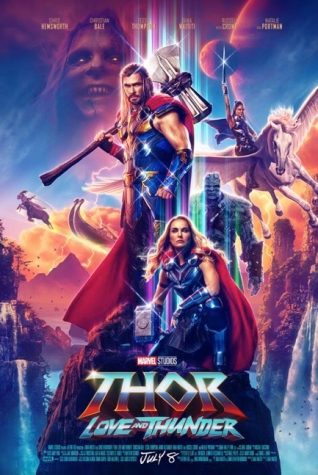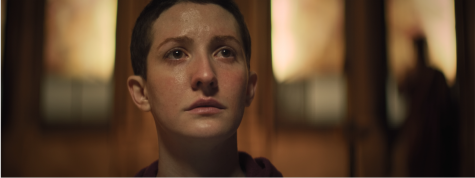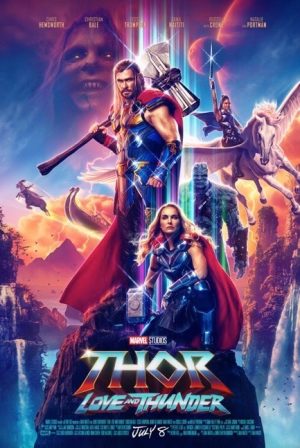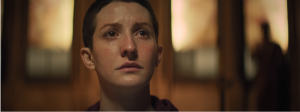Q&A: UT-Austin Ph.D. candidate Ja’nell Ajani talks Jordan Peele’s ‘Nope,’ Black horror genre
July 21, 2022
From Maya Angelou to Cindy Trimm to Rihanna, Ja’nell Ajani said she looks to many people as touchstones for how she wants to show up in the world.
The American studies Ph.D. candidate who curated Peace to the Queen — an exhibition extended until Sept. 17 at the George Washington Carver Museum and Cultural Center — said she also feels drawn to director, writer and producer Jordan Peele.
Ajani said she feels connected to the innovative ways in which Peele approaches his projects and assembles his teams, leading her to create and teach a course at UT called The Mind of Jordan Peele.
Peele’s newest social thriller, “Nope,” hits theaters Friday. In anticipation of the film, Ajani sat down with The Daily Texan to talk about her own work, The Mind of Jordan Peele course, “Nope” and the Black horror genre.
The Daily Texan: How did The Mind of Jordan Peele come to be?
Ajani: Equally as important (to talking about his work) was the idea of looking at Jordan as a Black entrepreneur. The foundation of “Key and Peele” and “Get Out” laid the groundwork for him to create Monkeypaw Productions (and) offer opportunities to other Black creatives. (We also look at) other Black cultural producers, directors and writers that are doing something as radical and innovative, like Issa Rae, Donald Glover, Tyler Perry or DeVon Franklin. Then, we peel back another layer, ‘Who are Black literary figures that speak to key issues, themes and ideas?’ We pull from stories and narratives (by) Toni Morrison, James Baldwin or Ta-Nehisi Coates (to see how) their stories amplified or contrasted the ideas that (Peele talks) about.
DT: What makes Black horror a space of interest for you?
Ajani: I watched a lot of thrillers growing up that (weren’t) necessarily set in the horror genre. (I once heard Tananarive Due say) that ‘Black horror is Black history,’ and that resonates with me. There are other facets, like ‘Black history is Black joy,’ but we’re talking about horror in the context of my course (and) Jordan’s work. It’s another lens to provide a perspective on life that some may have shied away from or don’t feel comfortable talking about.
DT: In teaching the course, are there new things you learn from or about Peele’s work?
Ajani: (I am) absolutely learning new things about his work. His choosing Keke Palmer as a lead (was) unexpected but a good moment for her — somebody who’s been in the industry since a child and hasn’t received her just due. Even though Jordan’s work is consumed by all types of diverse audiences, he’s intentionally making his films for Black audiences, and so I learn a lot from that.
DT: What do you expect from “Nope”?
Ajani: I’m wondering how horses are symbolically connected to the major ideas presented in the film. For example, if there will be an exploration of horses within the context of power, glory, spirituality and war, or if it will be something akin to thinking about references explored by Boots Riley, who did “Sorry to Bother You.” I am really interested to see what deeper conversations are going to be had because (Peele) said this movie is something we have never seen before.
DT: What do you hope for the future of the Black horror genre and social thrillers?
Ajani: I hope to see more Black women directing horror films and creating these stories because it’s very important to have that balance and equitable opportunity to take up space everywhere.

